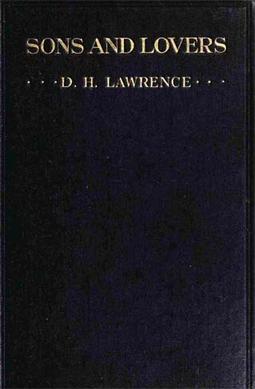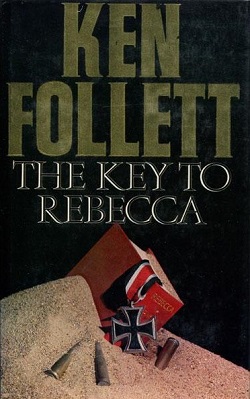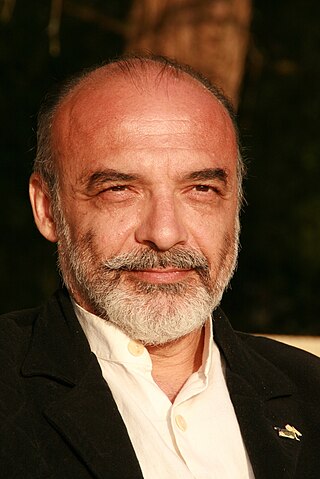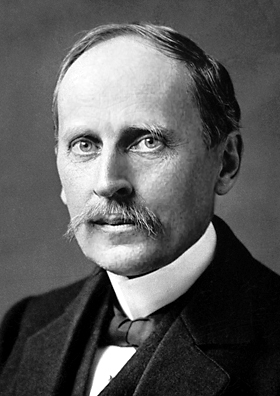Forgive us our Sins (orig. French Pardonnez nos offenses) is the title of a historical novel by Romain Sardou.
Forgive us our Sins (orig. French Pardonnez nos offenses) is the title of a historical novel by Romain Sardou.
Imagine staging the end of the world and observing the effects of this apocalypse on an isolated, rural village… imagine a group of powerful Vatican clerics coldly orchestrating such an experiment in search of scientific and theological "truth"…
1284 Heurteloup is a village tucked away in the marshlands of South West France. It has been cut off from the rest of the world for forty years and - so it seems - ignored by everyone including the local diocese and the state. Neighbouring townsfolk do not dare venture anywhere near Heurteloup - it is a place that inspires terror, a name that conjures up evil spirits, darkness and savagery. Not so long ago, the remains of corpses were found floating in a river, dragged by the current straight from the banks of the cursed town.
One man decides to set off to try to save the "soul" of Heurteloup: his name is Father Henno Gui. A newly ordained priest, Gui is driven purely by faith and his sense of vocation. He is accompanied by two loyal companions: a young boy, Floris, and a giant-like man, Mardi Gras, whose disproportionate size and disfigured face terrify onlookers.
Having walked for days, fighting their way through thick forests, Gui and his companions arrive at Heurteloup. The village is deserted and there is not a soul in sight. The Church is in ruins and the dwellings appear uninhabited. But when Gui looks carefully, he notices traces of recent human activity, and he can sense that their every move is being watched. He has no idea where the villagers are hiding. Most importantly, he can tell from effigies and statuettes of women that these hidden villagers worship ‘Gods’ of a very unorthodox kind…
So begins this violent story of power and corruption, where magic and superstition coexist alongside Catholicism and the stranglehold of the Vatican. Romain Sardou recreates the period as he weaves philosophical and religious questions through a chilling tale of murder and betrayal.
"The story shows all the verve of its young author. This medieval thriller cannot but inspire comparisons with Umberto Eco’s bestseller, The Name of the Rose . But whereas the author of Baudolino enjoys losing his reader, Romain Sardou goes straight to the heart. " - Le Parisien

Don Quixote, the full title being The Ingenious Gentleman Don Quixote of La Mancha, is a Spanish novel by Miguel de Cervantes. It was originally published in two parts, in 1605 and 1615. Considered a founding work of Western literature, it is often labelled as the first modern novel. Don Quixote is also one of the most-translated books in the world and one of the best-selling novels of all time.

Jane Austen was an English novelist known primarily for her six novels, which implicitly interpret, critique, and comment upon the British landed gentry at the end of the 18th century. Austen's plots often explore the dependence of women on marriage for the pursuit of favourable social standing and economic security. Her works are an implicit critique of the novels of sensibility of the second half of the 18th century and are part of the transition to 19th-century literary realism. Her deft use of social commentary, realism and biting irony have earned her acclaim among critics and scholars.

Crime fiction, detective story, murder mystery, mystery novel, and police novel are terms used to describe narratives that centre on criminal acts and especially on the investigation, either by an amateur or a professional detective, of a crime, often a murder. Most crime drama focuses on criminal investigation and does not feature the courtroom. Suspense and mystery are key elements that are nearly ubiquitous to the genre.

Sons and Lovers is a 1913 novel by the English writer D. H. Lawrence. It traces emotional conflicts through the protagonist, Paul Morel, and his suffocating relationships with a demanding mother and two very different lovers, which exert complex influences on the development of his manhood. The novel was originally published by Gerald Duckworth and Company Ltd., London, and Mitchell Kennerley Publishers, New York. While the novel initially received a lukewarm critical reception, along with allegations of obscenity, it is today regarded as a masterpiece by many critics and is often regarded as Lawrence's finest achievement. It tells us more about Lawrence's life and his phases, as his first was when he lost his mother in 1910 to whom he was particularly attached. And it was from then that he met Frieda Richthofen, and around this time that he began conceiving his two other great novels, The Rainbow and Women in Love, which had more sexual emphasis and maturity.

Romain Rolland was a French dramatist, novelist, essayist, art historian and mystic who was awarded the Nobel Prize for Literature in 1915 "as a tribute to the lofty idealism of his literary production and to the sympathy and love of truth with which he has described different types of human beings".

Louis Whitley Strieber is an American writer best known for his horror novels The Wolfen and The Hunger and for Communion, a non-fiction account of his alleged experiences with non-human entities. He has maintained a dual career of author of fiction and advocate of paranormal concepts through his best-selling non-fiction books, his Unknown Country web site, and his podcast, Dreamland.
Christopher Travis Rice is an American author. Rice made his fiction debut in 2000 with the bestselling A Density of Souls, going on to write many more novels, including The Snow Garden, The Heavens Rise, The Vines, as well as the Burning Girl series. His work spans multiple genres, including suspense, crime, supernatural thriller, and erotic romance. With his mother Anne Rice, he is the co-author of the historical horror novel Ramses the Damned: The Passion of Cleopatra and its sequel, Ramses the Damned: The Reign of Osiris.
A book series is a sequence of books having certain characteristics in common that are formally identified together as a group. Book series can be organized in different ways, such as written by the same author, or marketed as a group by their publisher.

Michel Charles Sardou is a French singer and occasional actor.
20th-century French literature is literature written in French from 1900 to 1999. For literature made after 1999, see the article Contemporary French literature. Many of the developments in French literature in this period parallel changes in the visual arts. For more on this, see French art of the 20th century.
Dell Publishing Company, Inc. is an American publisher of books, magazines and comic books, that was founded in 1921 by George T. Delacorte Jr. with $10,000, two employees and one magazine title, I Confess, and soon began turning out dozens of pulp magazines, which included penny-a-word detective stories, articles about films, and romance books.

Romain Sardou is a French novelist born in Boulogne-Billancourt, Hauts-de-Seine. He is the son of the singer and songwriter Michel Sardou.

Ḥayy ibn Yaqẓān is an Arabic philosophical novel and an allegorical tale written by Ibn Tufail in the early 12th century in Al-Andalus. Names by which the book is also known include the Latin: Philosophus Autodidactus ; and English: The Improvement of Human Reason: Exhibited in the Life of Hai Ebn Yokdhan. Ḥayy ibn Yaqẓān was named after an earlier Arabic philosophical romance of the same name, written by Avicenna during his imprisonment in the early 11th century, even though both tales had different stories. The novel greatly inspired Islamic philosophy as well as major Enlightenment thinkers. It is the third most translated text from Arabic, after the Quran and the One Thousand and One Nights.

Shooting Star (1999) is a Ned Kelly Award-winning novel by Australian author Peter Temple.

The Key to Rebecca is a novel by the British author Ken Follett. Published in 1980 by Pan Books (ISBN 0792715381), it was a best-seller that achieved popularity in the United Kingdom and worldwide. The code mentioned in the title is an intended throwback from Follett to Daphne du Maurier's famed suspense novel Rebecca.

Édouard Brasey is a French novelist, essayist, scriptwriter and story-teller born on 25 March 1954. Author of more than seventy works, many of which have been translated into English, Russian, Japanese, Spanish, Portuguese and Italian. He specialises in the themes of the esoteric, fables, legends and fantasy. He won a prize of Imaginales in 2006 for La Petite Encyclopédie du Merveilleux, and a prize Merlin in 2009 for his novel La Malédiction de l'Anneau. Subsequently, he has become essentially a novelist, notably published by Calmann-Lévy. His historical-esoteric thriller that was published in 2013, Le Dernier Pape, anticipated the abdication of Benoît XVI.
Steven Gregory Spruill is an author of horror, science fiction, and thriller novels, best known for his "hemophage" novels: Rulers of Darkness, Daughter of Darkness, and Lords of Light. He has also written under the names Steve Harriman and Steve Lyon.
Hugh Crauford Rae was a Scottish author of romantic historical fiction novels and thrillers. He wrote fiction using several pseudonyms, including Jessica Stirling, Robert Crawford, James Albany, Stuart Stern and R. B. Houston.

Les Hommes de bonne volonté is an epic roman-fleuve by French writer Jules Romains, published in 27 volumes between 1932 and 1946. It has been classified both as a novel cycle and a novel and, at two million words and 7,892 pages, has been cited as one of the longest novels ever written.

The 1915 Nobel Prize in Literature was awarded to the French author Romain Rolland (1866–1944) "as a tribute to the lofty idealism of his literary production and to the sympathy and love of truth with which he has described different types of human beings." The prize was awarded the following year on November 9, 1916 and he is the third Frenchman who became a Nobel recipient for the literature category.